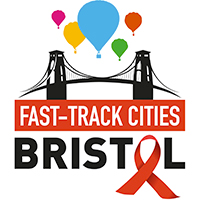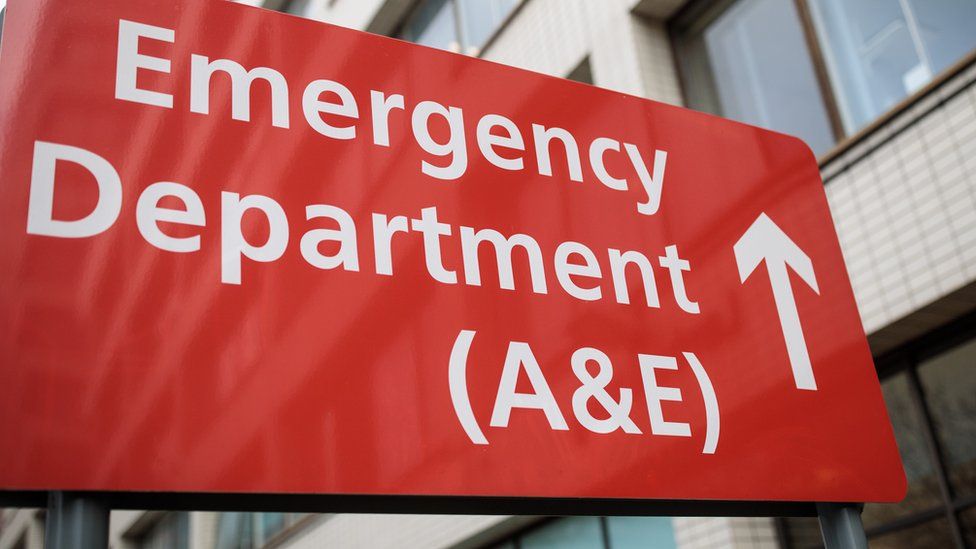Thousands of people who have attended emergency departments in Bristol have been tested for HIV, hepatitis B and hepatitis C as part of a new programme.
The tests are being offered by North Bristol NHS Trust (NBT) and University Hospitals Bristol and Weston NHS Foundation Trust (UHBW) at both Southmead Hospital and the Bristol Royal Infirmary’s emergency departments to everyone over 18-years-old who is having blood taken.
Introduced on October 7, more than 6000 tests have already been completed and positive test results identified. Those who have received positive test results have been offered appropriate support and a treatment plan.
From 23 November the test will be available at Weston General Hospital’s emergency department too.
Dr Matthew Clarke, emergency department consultant for North Bristol NHS Trust, said: “We are proud to include testing for HIV, hepatitis B and hepatitis C in the care we offer people visiting our emergency department. It is such an important step towards normalising testing and linking people to the care that they need.
“HIV, hepatitis B and hepatitis C can lead to other health problems if left untreated, so detecting these viruses and directing people towards the correct specialists is vital.”
HIV and hepatitis B and C can be symptomless, meaning people can live with them for years and not know. However, treatment for all three viruses is free on the NHS and can be lifesaving.
If diagnosed and treated promptly, people with HIV can live normal and healthy lives. People living with HIV who are on treatment and have undetectable levels of HIV cannot pass HIV on through sex. Left untreated hepatitis B and hepatitis C can lead to serious health implications, including liver cancer.
Dr Fiona Gordon, a consultant for hepatology at University Hospitals Bristol and Weston NHS Foundation Trust and clinical lead for the hepatitis C national elimination programme across the Bristol and Severn region, said:
“Routine screening for hepatitis B and C in our EDs will greatly improve patients’ access to specialist care, by rapidly linking them to simple and highly effective treatment. We are hopeful that this will enable Bristol to eliminate Hepatitis C well before the WHO target of 2030 and improve outcomes for patients with Hepatitis B.
“Viral hepatitis is usually a silent disease until patients develop either liver failure or liver cancer, both of which can be completely prevented by early antiviral treatment. The ED testing programme complements a wider Bristol initiative to improve screening for liver disease including the Alright-my-Liver community fibroscan project and introducing routine antenatal screening for Hepatitis C.
“We are fortunate to have an experienced team of peer support workers from the HepC Trust and Brigstowe working closely with our hospital teams to help counsel patients previously not known to have a blood-borne virus.”
The emergency department blood borne virus testing programme, rolled out by NHS England, was first introduced two years ago across London, Manchester, Blackpool and Brighton and has so far identified thousands of people living with one of these three blood-borne viruses who otherwise would not have known.
NBT and UHBW are hoping more than 95 per cent of eligible patients will have the tests however, anyone who does not wish to be tested is welcome to speak to staff about opting out.
Councillor Stephen Williams, Chair of the Public Health and Communities Committee, Bristol City Council, said:
“I’m delighted that testing for blood-borne viruses has now started in our local emergency departments. Having people routinely tested for HIV and Hepatitis when any blood is taken is a welcome step forward. Not only will it save lives, but it will also normalise testing, reduce stigma and help us address health inequalities. As an HIV Fast Track City, we are working together to help end new cases of HIV by 2030 and this programme will go a long way in helping us to achieve this Bristol-wide goal.”
Aled Osborne, Community Engagement Manager for Brigstowe, said:
“Everyone deserves the right to effective and timely life-saving HIV treatment and support. One in three people living with HIV have received stigma or discrimination because of their HIV status. This programme will go a long way in ensuring no one is left behind. HIV is no longer the death sentence it was and there should be no fear in getting tested. People living with HIV on treatment cannot pass the virus on and are able to live a long and healthy life.”



